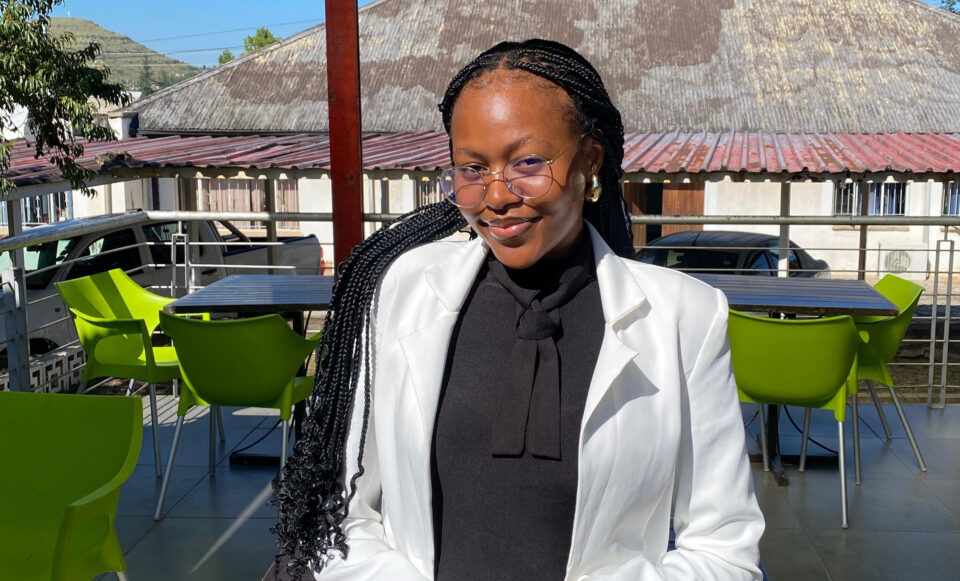Mohloai Mpesi
THE Transformation Resource Centre (TRC) has strongly condemned the intimidation, harassment, and threats against journalists and activists in Lesotho, warning that such actions threaten democratic governance and freedom of expression.
Delivering a presentation at the 85th Ordinary Session of the African Commission on Human and Peoples’ Rights (ACHPR) held at the Sir Dawda Kairaba Jawara International Conference Centre in The Gambia last week, TRC Human Rights Officer, Letšabisa Malebanye, said the hostile environment had fostered fear and self-censorship within the media fraternity.
Ms Malebanye highlighted several significant issues, including torture and ill-treatment, freedom of speech and expression, violence and discrimination against LGBTI+ persons, failure to report national challenges at international forums, healthcare for rare diseases, procedural violations in the passing of Constitutional Reforms, and government achievements on social inclusion and human rights.
She cited the case of the Lesotho Times and the Sunday Express editor, Mohalenyane Phakela, who was detained by the Directorate on Corruption and Economic Offences (DCEO) in late August this year. The environment for freedom of expression in Lesotho continues to deteriorate as public dissenters, including journalists and activists, face intimidation, harassment, and targeted threats.
“On 29 August 2025, investigative journalist Mohalenyane Phakela, editor of the Lesotho Times, was detained by the DCEO. He was falsely accused of impersonating a DCEO officer to obtain information.
“Despite presenting evidence that he had not impersonated any official, he was ordered to surrender his two phones and detained. He was released on 30 August after the DCEO failed to produce sufficient evidence, and the case was officially dropped on 8 September 2025,” Ms Malebanye said.
She also mentioned the callous killing of Ralikonelo “Leqhashasha” Joki in May 2023, who was shot dead after leaving the private radio station Tŝenolo FM at Lower Thamae.
“The 2023 killing of journalist Ralikonelo Joki and ongoing harassment of media personnel have fostered a climate of fear, resulting in self-censorship and restricted civic space.”
Ms Malebanye stressed that intimidation against dissenters increasingly creates an antagonistic environment.
“State actors must safeguard constitutional guarantees of free speech and ensure protection for critical voices to underpin democratic governance. An increasingly hostile environment marked by threats, harassment, and intimidation of dissenters violates the constitutional guarantee of freedom of expression (Section 15) and ACHPR Article 9.”
She highlighted numerous atrocities of torture and ill-treatment by members of the Lesotho Mounted Police Service (LMPS), including the unlawful detention and torture of the Kao community in Butha-Buthe. She also referenced the Maseru Correctional Centre Institution (MCCI) in 2023, where inmates were tortured and beaten.
“There are still outstanding investigations and prosecutions concerning these incidents. Such atrocities were first widely documented in 2019, when police unlawfully detained, tortured, inhumanely ill-treated, and humiliated residents of the Kao community in Butha-Buthe. One victim, Poshoane Moloi, died from torture-related injuries. Another victim recently died due to injuries linked to the 2019 violent operations.
“In May 2022, LMPS members stationed at Ha-Lejone, in a joint operation with the Lesotho Defence Force, tortured and subjected about 46 Liseleng community members to gross ill-treatment.
“Furthermore, the Ombudsman’s 2023 report revealed severe abuses at MCCI, where detainees suffered torture, beatings, and denial of medical care by correctional officers, some of whom colluded to cover up these abuses.”
Ms Malebanye also addressed the recent passage of the Tenth Amendment to the Constitution Act, 2025, which sparked controversy and attracted legal challenges from civic groups such as Section II and the Law Society of Lesotho.
“The recently passed Tenth Amendment to the Constitution Act, 2025 introduces significant reforms aimed at modernizing Lesotho’s legal and governance framework.
“However, the manner in which it was passed has generated controversy and legal challenges. Critics, including Section II and the Law Society of Lesotho, argue that several sections contradict the constitutional amendment procedures set out in Section 85 of the 1993 Constitution, particularly concerning required majorities and the absence of a referendum for fundamental constitutional changes.
“They accuse Parliament of bypassing or tampering with constitutional safeguards, claiming the amendment process lacked adequate public participation and transparency, thereby undermining the Constitution’s supremacy,” she said.


